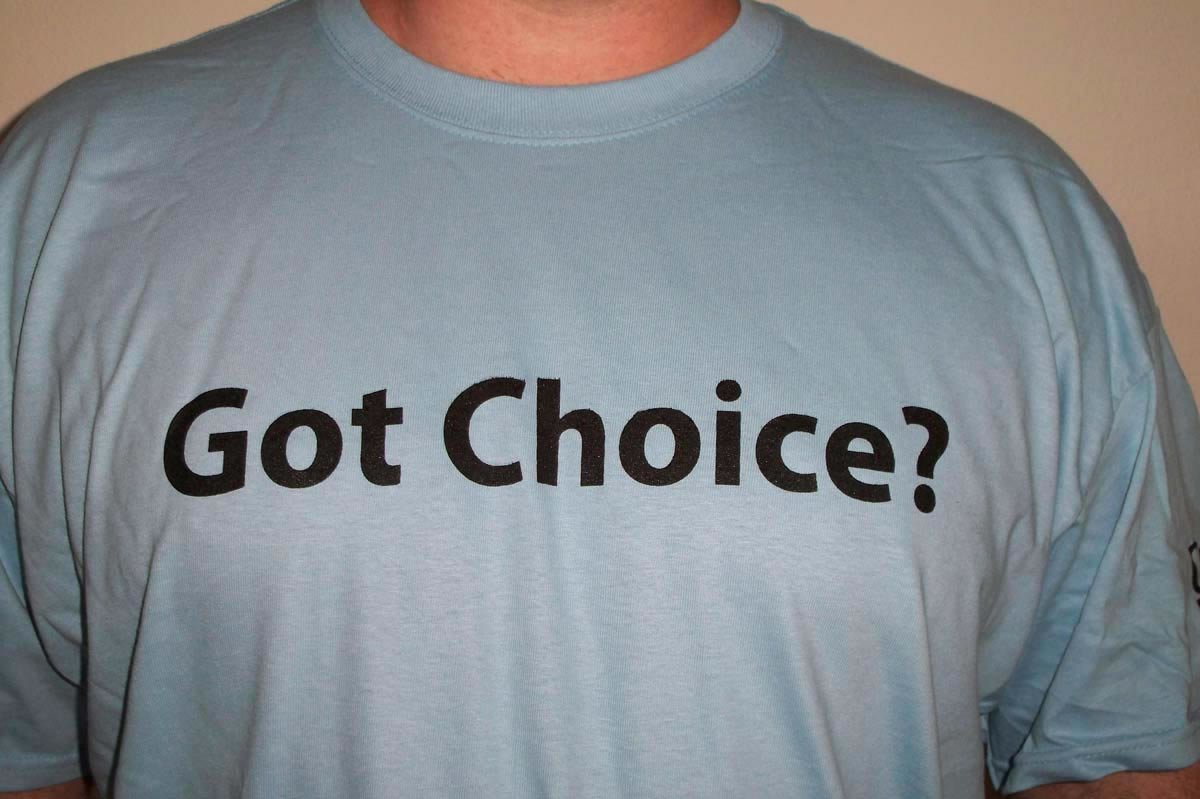
My articles on psychology and human affairs all rest on one implicit premise: That free will exists, not as an article of faith, but as an observable, provable fact.
Not all writers in psychology, and not all biologists, agree.
Biologist Anthony Cashmore argues that a belief in free will is akin to religious beliefs, since neither complies with the laws of the physical world:
“One of the basic premises of biology and biochemistry is that biological systems are nothing more than a bag of chemicals that obey chemical and physical laws. Generally, we have no problem with the “bag of chemicals” notion when it comes to bacteria, plants, and similar entities. So why is it so difficult to say the same about humans or other “higher level” species, when we’re all governed by the same laws?” (Source: phys.org 3/3/10, “Free Will is an Illusion, Biologist Says”)
I’ll tell you why.
The very fact that you’re reading this quotation right now is proof of free will. You could have chosen to focus your consciousness elsewhere. Instead, you’ve chosen to remain in focus and stay this far with me.
The case for free will is self-evident. The definition of free will is the choice to initiate (and maintain) the focus of thinking. Any indication of starting to think, or drifting into a fog, implies you have chosen to go a certain way.
It’s ludicrous to say there is no free will. Cashmore runs for the usual cover in attempting to deny it. “Free will means you’re religious.” He’s hiding under the cover of science. But what is science? Science is the accumulation of rational, objective knowledge ultimately derived from sense perception. The pursuit of science, or knowledge, is itself a demonstration of free will.
Most human beings ignore the importance of science while still enjoying its benefits. Throughout history, some cultures have permitted and encouraged science, while others have condemned or even persecuted for it. Contrast the post-Renaissance era of the eighteenth century, where reason and science flourished, with the Middle Ages, where the religiously controlled population was never permitted to discover knowledge that overrode the religiously correct control freaks.
He goes on to say, “Today, as researchers gain a better understanding of the molecular details underlying consciousness, some people think that we may discover a molecular mechanism responsible for free will…,” but Cashmore doesn’t think so. Such a discovery, he says, would require a new physical law that breaks the causal laws of nature.
Earth to researchers (and Cashmore): You don’t need to find molecular proof of free will. The self-evident initiation of thought, in which all humans must engage in order to survive and thrive, is all the proof you need. As I indicated, any attempt to refute the existence of free will involves a contradictory evasion of its existence. For example, do you accept or reject Cashmore’s premise? Or do you dismiss the subject altogether, concluding that it’s irrelevant? Regardless, you have exercised free will in the matter. It’s inescapable.
Biological determinists claim that our chemical and biological make-up completely determine everything we do. Presumably, this includes how, what and whether we think. Then how do you explain that some people think and some do not? It’s true that not everyone possesses equal intelligence. We might even discover biological attributes that explain greater intelligence in some.
However, what does level of intelligence have to do with whether one chooses to think? The world is full of intelligent people who squander their intelligence, while others utilize it brilliantly. The world is full of people who think and use their productive capacities to the best of their ability.
We observe and talk about somebody using good judgment, bad judgment or perhaps no judgment at all. These all relate to whether, or in what way, a person of either high or modest intelligence thinks.
I’m willing to bet that in Cashmore’s daily life, he draws conclusions about other people’s judgments. He chooses among various options at the grocery store, in career decisions or whatever. If he has children, he chose to have children. He chooses how to raise them. If he spends his income on a vacation, that was a choice. If he spends it on something else, that was a choice. How can he deny free will?
It’s true that some religions connect the idea of free will to supernaturalism. Religion, by definition, is not scientific. But that’s no reason to deny the existence of free will as an objective, scientific fact. Religions usually promote free will so you’ll make the choices they wish you to make. They tell you that if you make one set of choices, you’ll be eternally damned to hell, and if you make different choices, you’ll experience permanent bliss with your supernatural creator (of choice).
But free will is necessary for survival, i.e., in reality. No belief or reference to any supernatural afterlife is implied. You either choose to think, or you don’t. You either choose to remain in focus about your survival and your secular values, or you do not.
The extent to which you do think rationally and in an ongoing, always rationally evolving sort of way, is the extent to which you’ll find a reasonably successful and happy life.
The extent to which you choose to ignore the necessity of thinking and taking action based on that thinking, is the extent to which you’ll either depend on others as a helpless parasite, or ultimately perish through lack of thinking.
The choice — yes, the choice — is yours.
Be sure to “friend” Dr. Hurd on Facebook. Search under “Michael Hurd” (Rehoboth Beach DE). Get up-to-the-minute postings, recommended articles and links, and engage in back-and-forth discussion with Dr. Hurd on topics of interest.
